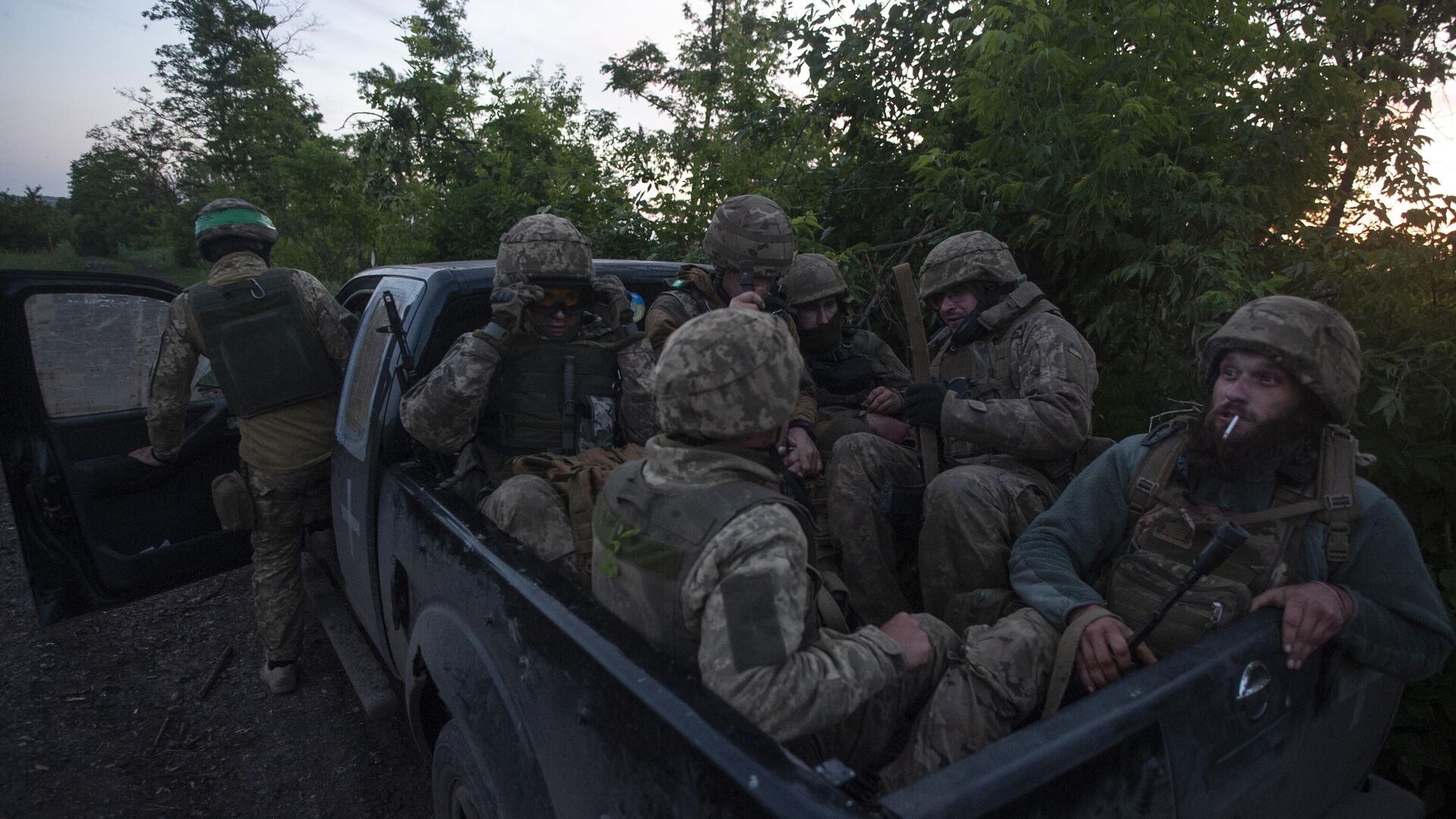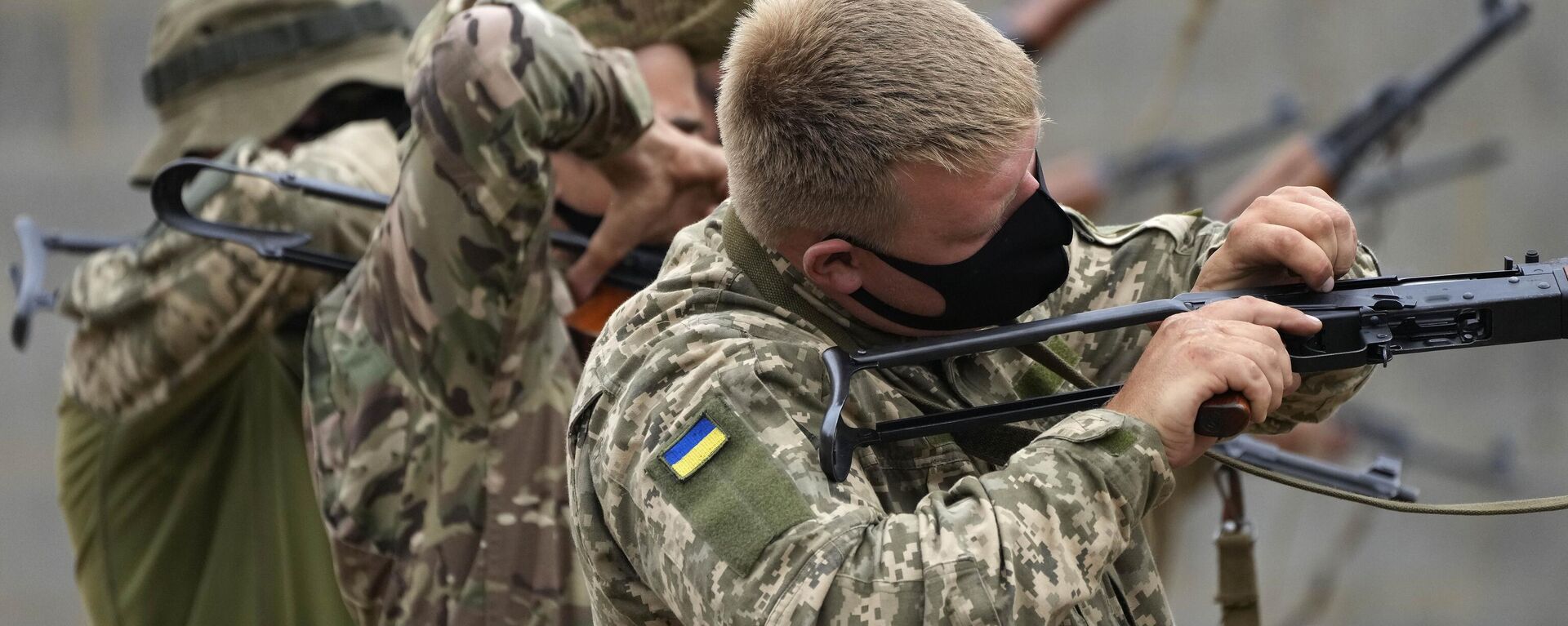https://sputnikglobe.com/20240705/is-kiev-attempting-to-expand-ukrainian-conflict-into-belarus-1119255023.html
Is Kiev Attempting to Expand Ukrainian Conflict Into Belarus?
Is Kiev Attempting to Expand Ukrainian Conflict Into Belarus?
Sputnik International
Ukrainian troop movements near the border with Belarus hint at Kiev’s desire to drag Minsk into the ongoing conflict, says veteran military and international affairs specialist Andrei Koshkin.
2024-07-05T18:24+0000
2024-07-05T18:24+0000
2024-07-05T18:25+0000
analysis
andrei koshkin
ukraine
belarus
conflict
https://cdn1.img.sputnikglobe.com/img/07e7/0a/15/1114390850_0:0:3077:1731_1920x0_80_0_0_554613b8b2725b3f0ed7768ea7246c55.jpg
Donald Trump’s campaign promises to quickly end the Ukrainian conflict also make Kiev nervous enough to consider staging a bloody provocation that might prompt Western powers to send more weapons and money to Ukraine, he suggests. “First of all, Kiev seeks to expand the geography of the conflict, to drag Belarus into it while hoping that Poland would become involved as well,” Koshkin tells Sputnik. “Secondly, to highlight the fact – amid the ongoing election campaign in the US – that if Joe Biden does not resort to radical measures then Donald Trump would end the conflict (if Trump gets elected as president) and investigations into the Biden family affairs in Ukraine would begin.”Thirdly, he adds, Ukraine wants to signal to Europe that, if the latter won’t help, then Ukraine is not going to defend “European democracy.” Despite that, Koshkin appears skeptical about Ukraine’s ability to force a direct military confrontation with Belarus.That said, Ukrainian troops massed on the border with Belarus do concern both in Minsk and Moscow, and it does destabilize the situation in the region, Koshkin remarks.
https://sputnikglobe.com/20240701/ukraines-border-guard-confirms-ongoing-military-buildup-on-belarus-border-1119207872.html
ukraine
belarus
Sputnik International
feedback@sputniknews.com
+74956456601
MIA „Rossiya Segodnya“
2024
News
en_EN
Sputnik International
feedback@sputniknews.com
+74956456601
MIA „Rossiya Segodnya“
Sputnik International
feedback@sputniknews.com
+74956456601
MIA „Rossiya Segodnya“
belarus ukraine relations, belarus ukraine border, ukrainian conflict
belarus ukraine relations, belarus ukraine border, ukrainian conflict
Is Kiev Attempting to Expand Ukrainian Conflict Into Belarus?
18:24 GMT 05.07.2024 (Updated: 18:25 GMT 05.07.2024) Ukrainian troop movements near the border with Belarus hint at Kiev’s desire to drag Minsk into the ongoing conflict, says veteran military and international affairs specialist Andrei Koshkin.
Donald Trump’s campaign promises to quickly end the Ukrainian conflict also make Kiev nervous enough to consider staging a bloody provocation that might prompt Western powers to send more weapons and money to Ukraine, he suggests.
“First of all, Kiev seeks to expand the geography of the conflict, to drag
Belarus into it while hoping that Poland would become involved as well,” Koshkin tells Sputnik. “Secondly, to highlight the fact – amid the ongoing election campaign in the US – that if Joe Biden does not resort to radical measures then Donald Trump would end the conflict (if Trump gets elected as president) and investigations into the Biden family affairs in Ukraine would begin.”
Thirdly, he adds, Ukraine wants to signal to Europe that, if the latter won’t help, then Ukraine is not going to defend “European democracy.”
Despite that, Koshkin appears skeptical about Ukraine’s ability to force a direct military confrontation with Belarus.
“This is a provocation staged by the Kiev regime in an attempt to destabilize Belarus, to attract the attention of the Western countries,” he says, adding that he does not think Poland would directly enter the conflict either.
That said, Ukrainian troops massed on the border with Belarus do concern both in Minsk and Moscow, and it does destabilize the situation in the region, Koshkin remarks.



